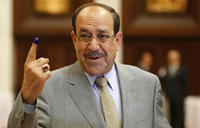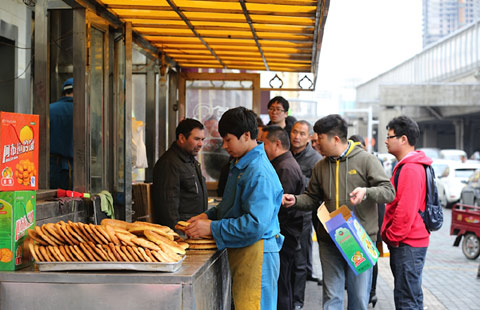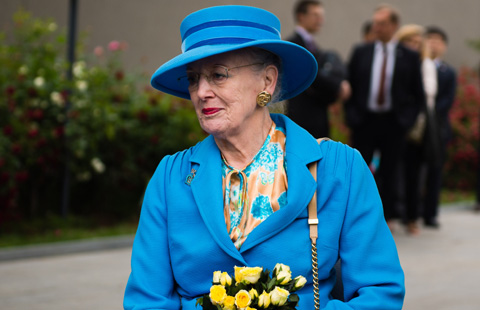Iraq's parliamentary elections test hope for change
Updated: 2014-04-30 19:25
(Xinhua)
|
|||||||||||
|
A woman shows her ink-stained finger at a polling station during a parliamentary election in Baghdad April 30, 2014. Iraqis headed to the polls on Wednesday in their first national election since U.S. forces withdrew from Iraq in 2011, with Prime Minister Nuri al-Maliki seeking a third term amid rising violence. [Photo/Agencies] |
A LONG WAY TO GO
Following the last parliamentary elections in March 2010, continuing disputes over vote counting, legal interpretations and alliance negotiations resulted in more than eight months of political deadlock.
In this year's elections, the major sectarian and ethnic blocs have fragmented into many smaller alliances as the Federal Supreme Court ruled in 2010 that the "largest bloc," which has the right to form a new government, can mean the largest coalition that is re-formed after the elections.
|
 Iraqis begin to vote in parliamentary elections |
The fragmentation has led to increasing conflicts among electoral parties about who is better to represent its own communal interests, which only creates more heated political rhetoric.
The State of Law Coalition is widely expected to lead in the elections this time but still will possibly be far away from securing a majority as it faces severe challenges from other electoral entities, including rival Shiite blocs.
"I think (forming a new government) may take one year, not only eight months. Because the problem is bigger than the problem they faced after the election in 2010," said Aziz Shayal, a professor of politics at Baghdad University. "This election may be very complicated in order to convince who accepts the political majority,"
"Who will become the majority? And who will accept becoming the opposition? I think this is a very complicated situation, so it needs more time to negotiate to reach an agreement among those different people," Shayal said.
Related Stories
Suicide attack kills 10 in Iraq 2014-04-21 19:17
Iraq election chiefs quit amid violence 2014-03-27 08:52
US accelerates delivery of weapons to Iraq 2014-03-17 10:08
No arms deal signed between Iran and Iraq 2014-02-26 13:35
Iraq's Shiite cleric Moqtada al-Sadr quits politics 2014-02-16 16:37
48 killed, 119 wounded in Iraq violence 2014-02-06 10:06
Today's Top News
Russia's FM scolds West for imposing sanctions
Obama's trip not to achieve goals
Media mogul interested in Clippers
Director enjoys overseas success
Philippine pact gives US access to air, sea bases
Hunt resumes for bodies inside ferry
Ukrainian mayor wounded by gunfire
Alibaba IPO: Could be the biggest ever
Hot Topics
Lunar probe , China growth forecasts, Emission rules get tougher, China seen through 'colored lens', International board,
Editor's Picks

|

|

|

|

|

|





